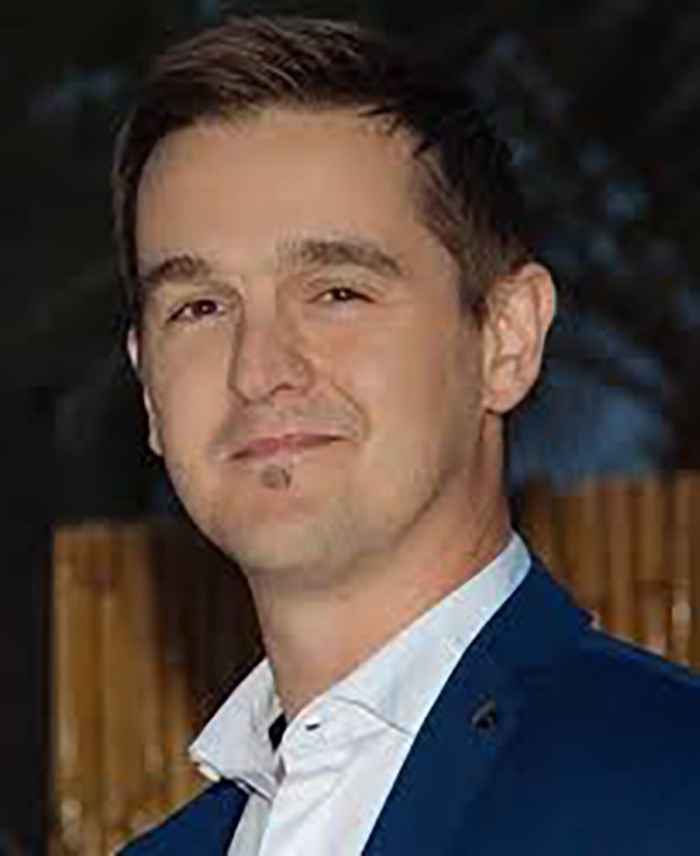Computational Science Lab (CSL)
Gaining insight into complex natural phenomena through computational modelling and simulation
Traditional means of analysis, like mathematics, will only get you so far. If you really want to understand why the financial market will crash or a crowd will stampede, you also need computational modelling techniques.Mike Lees, chair of the group.

Research
The Computational Science Lab (CSL) is a research group within the Informatics Institute at the University of Amsterdam. CSL focuses on the information processing of complex and dynamic natural systems. A complex natural system can be a flock of birds, the traffic in a city or the spreading of a virus in the human body. All these systems consist of individual entities – birds, vehicles, cells - that interact with each other and the environment. They have mechanisms and rules by which they operate, but it is very hard to predict their behaviour. You need computational techniques to simulate the process and understand future behaviour.
The predominant question the group tries to answer: How can you use computational techniques to make complex natural systems tractable?
The different complex systems often show similar phenomena. A phase transition for instance, occurs suddenly and often quickly without a clear cause. Think of a sudden traffic jam or the collapse of the stock market in 2008. CSL tries to discover the characteristics of these phenomena and apply them to other domains. In the study of the growth of coral reefs for example, they have observed that the phase transition of calcification is happening alarmingly quickly.
CSL applies these computational techniques to a wide range of different domains. In a project with the Dutch Police, they are exploring the best way to tackle criminal networks in the Netherlands. In the Urban Mental Health project, CSL researchers investigate the social networks of addicts. And a great example of how computational models can help in decision-making processes, is the Virtual Physiological Human Project, a large European project in which CSL participates. The researchers are working on a full 3D virtual representation of the human body that can simulate for instance medical procedures.
Facts & figures
CSL is at the forefront of computational science in the world. In the last three decades the group has developed a school of thought in Computational Science. The complex system simulation research they perform is the strongest worldwide and the connection between complexity and high performance computational modelling is a unique strength. They have been organizing ICCS, the largest conference on computational science in the world, every year for the last 21 years. They also founded the Journal of Computational Science and the largest Master Programme in Computational Science in the world.
The group consists of roughly 60 people, including staff, students and external students. This makes them the biggest research group within the Informatics Institute. CSL is proud to have five full professors of computational science around the world as part of their alumni. The group works on many different grants: Virtual Singapore, FCL, NWO, EU, the Police, City of Amsterdam, RIVM, the Inspectorate of Education, the Singapore Leading scientist mega grand, VECMA and CompBioMed.
Partnerships & collaborations
Because of the strong connection with real-world problems, the group collaborates intensively with scientist form other fields like medicine, psychology, biology, sociology, and chemistry. The group also has close connections with the UvA Institute for Advanced Study, where researchers from different disciplines work collaboratively on complex scientific and societal challenges.
Together with social scientists, the Dutch Inspectorate of Education and the City of Amsterdam, the group is working on the COMPASS project that tries to predict segregation in Dutch schools. Schools are generally more segregated than neighbourhoods. Together with the Ministry of Education, they are now looking at smart ways of intervention.
Education
The group has developed and is involved intensively in teaching the Master of Computational Science, a joint degree programme of the UvA and Vrije Universiteit Amsterdam, attracting more than 100 students per year. Besides the computer science bachelor, many students come from other disciplines such as biology, chemistry, physics or sociology.
Future mission
Computational Science has an important role to play in many of tomorrow’s scientific challenges. In the coming years CSL aims at understanding the coupling and commonality between the behavioural and physical world.
CSL aims to make more accurate predictions of the outcome of interventions due to (1) better computational models, (2) deeper understanding of the interconnectivity of these systems and (3) the availability of data. There are a few crucial research areas that the group is contributing to in this regard. Firstly, the issue of time criticality in prediction. Being able to predict the right intervention in a pandemic for instance, has a critical time requirement. Secondly, understanding, quantifying and reducing the uncertainty in model predictions. For a difficult intervention to be applied, it is vital that they understand the likelihood of its success.
CSL positions itself in the research theme Computational Science with clear links to AI and People, Society & Technology.